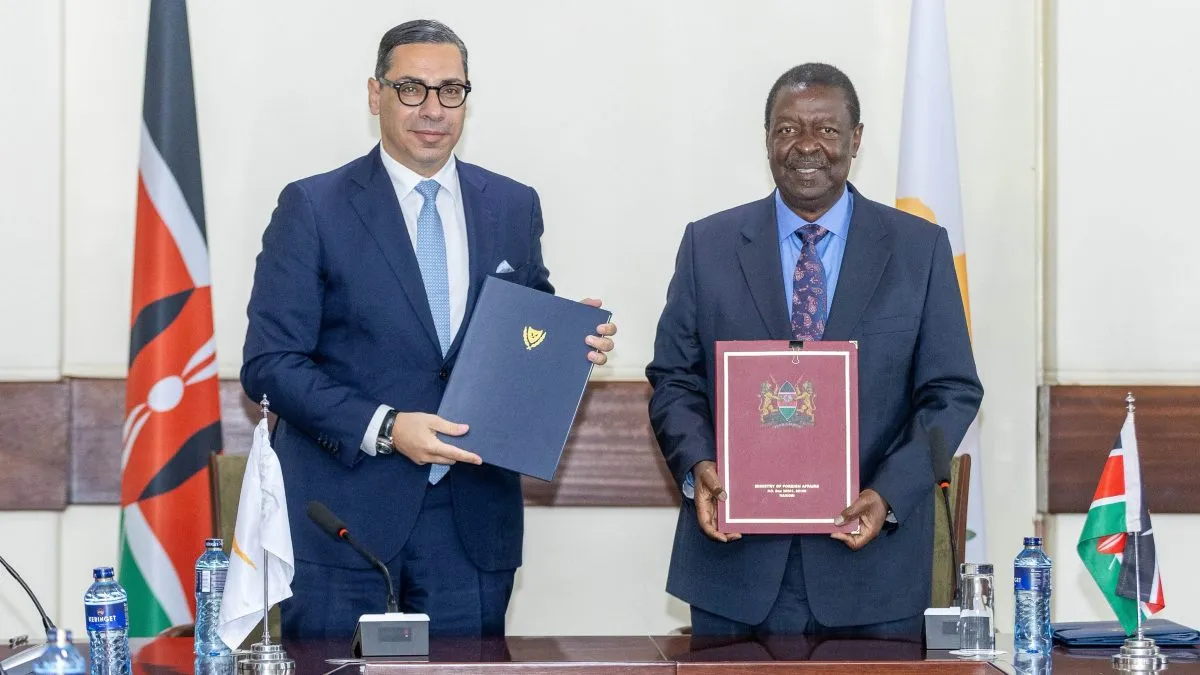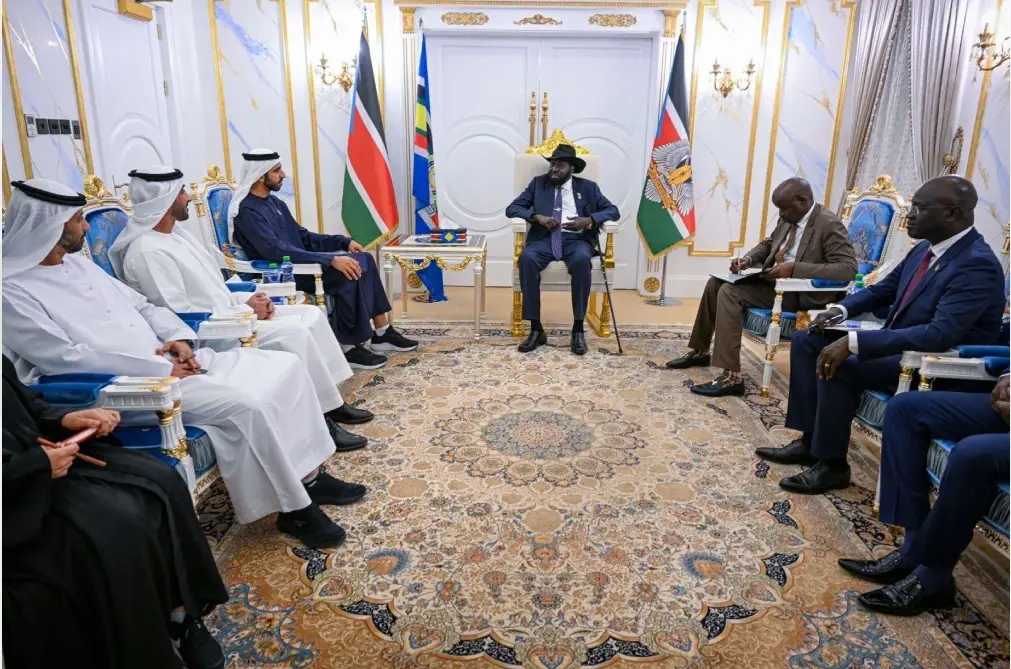In a notable shift that signals the continent’s evolving investment landscape, African startups raised a record $469.9 million in funding during the first quarter of 2025. Cleantech emerged as the crown jewel of this new era, overtaking the once-dominant fintech sector and capturing investor interest with sustainable, climate-focused innovations. The fresh wave of capital is not only a testament to Africa’s vibrant entrepreneurial spirit but also an indicator of a broader global pivot towards sustainability and long-term resilience.
A Transformative Quarter: Funding Overview
According to Condia’s Funding Tracker, the first quarter of 2025 saw 43 publicly disclosed deals, marking a 27% increase in total funds raised compared to Q1 2024’s $369 million. Although the number of transactions is lower than in previous quarters, the significant increase in deal size indicates that investors are favoring more mature, growth-stage companies with proven business models over early-stage ventures. This trend of funding consolidation highlights a strategic shift towards companies that are not only innovative but also capable of scaling operations effectively.
The quarter kicked off with a bang in January, which accounted for over half of the total funding with $245.2 million, followed by a robust $185.75 million in February. In contrast, March’s activity dipped to $29.27 million, reflecting a seasonal slowdown and possibly strategic recalibration by investors. The volatility within the quarter underscores the dynamic nature of the startup ecosystem and the cautious optimism permeating the investment community.
Regional Powerhouses: The Geography of Investment
Geographically, the funding was concentrated among a handful of markets, with South Africa leading the charge by raising $120.42 million—accounting for 25.6% of the total funds. Nigeria followed with $78 million (16.6%), while Kenya and Egypt raised $67 million (14.3%) and $53.7 million (11.4%) respectively. In a surprising yet welcome development, Togo broke into the top five with Gozem’s impressive $30 million Series B round. Collectively, these five nations captured 88.7% of the quarter’s funding, reinforcing the trend of geographical concentration in Africa’s startup ecosystem.
Historically, the “Big Four” markets—Nigeria, Kenya, South Africa, and Egypt—have dominated the scene, accounting for over 91% of funds raised in Q1 2024. Although the share has slightly shifted this year, these core markets remain at the forefront of investment activity. The entry of Togo into this elite group marks an important milestone, demonstrating that emerging markets across the continent are beginning to attract substantial investor attention.
Sector Spotlight: The Rise of Cleantech
Cleantech startups led the funding race this quarter, attracting $164.5 million, or 35% of all funding. This is a dramatic increase compared to the 13% share cleantech commanded in Q1 2024, reflecting a broader global emphasis on sustainability. Investors are increasingly drawn to companies that offer innovative solutions to energy access challenges, climate change, and environmental sustainability. The rapid scaling of cleantech ventures on the continent is not only reducing the carbon footprint but also providing a pathway for economic resilience amid global energy uncertainties.
This sector’s meteoric rise comes at a time when climate change and environmental degradation have become urgent global concerns. Investors are beginning to view sustainable innovation not just as a moral imperative but as a profitable long-term strategy. In Africa, where energy access remains a critical issue for millions, the surge in cleantech funding promises transformative changes. From renewable energy projects to innovative waste management and sustainable agriculture practices, cleantech startups are carving out a niche that addresses some of the most pressing challenges of our time.
Fintech’s Resurgence and Other Sectors
Fintech, which had previously been the dominant force in African startup funding, raised $117.67 million, accounting for 25% of the total. Although this figure marks a substantial improvement from the 7.78% share recorded in the same quarter last year, it now sits in second place behind cleantech. This resurgence indicates that while investors are diversifying their portfolios, there remains a robust interest in digital financial services. The rebound in fintech can be partly attributed to the increased digital penetration and the rising demand for innovative financial solutions that cater to both the unbanked and underbanked populations across Africa.
Insurtech also made significant strides, raising $76 million (16.2% of the total funding). This growth is notable because insurtech has rarely appeared among the top-funded sectors in previous quarters. The increased attention toward insurtech suggests that investors are beginning to recognize the untapped potential of the insurance market in Africa—a market where traditional models have struggled to gain widespread acceptance. Enhanced digital platforms and data-driven models are now making insurance more accessible and affordable for a broader segment of the population.
Other sectors, though modest in their contributions, are also evolving. Logistics startups attracted $36.5 million (7.8%), indicating a growing focus on infrastructure and supply chain innovation. Agritech startups raised $21.1 million, underscoring the importance of modernizing agricultural practices and boosting food security. E-commerce, despite facing stiff competition globally, managed to pull in $12.75 million, reflecting the persistent consumer demand for digital retail solutions. Meanwhile, edtech continued to thrive, with Enko Education securing a significant $24 million to expand its network of African schools—highlighting the continent’s commitment to building a future-ready workforce.
The Changing Dynamics of Investment
Consolidation of Funding
One of the most striking trends in Q1 2025 is the consolidation of funding into fewer but larger deals. This pattern suggests that investors are becoming more selective, prioritizing companies with proven track records and clear pathways to profitability. In an environment marked by uncertainty and rapid technological changes, such an approach is seen as a safer bet. Investors are not only looking for innovation but also for resilience, scalability, and the ability to adapt to market fluctuations.
The Shift Towards Sustainable Innovation
The rise of cleantech is perhaps the most defining characteristic of this quarter’s funding landscape. With global attention increasingly focused on climate change, African startups that offer sustainable solutions are finding a receptive audience among investors. This shift is not merely about financial returns—it also reflects a growing recognition of the need for environmentally responsible business models. Cleantech’s success signals a broader trend where sustainability is becoming an integral part of business strategy, rather than an afterthought.
Regional Diversification and the Emergence of New Markets
While traditional markets like Nigeria, Kenya, South Africa, and Egypt continue to dominate, the entrance of Togo into the top five is a clear indicator of the evolving regional dynamics. This geographical diversification is a positive development, suggesting that innovation is no longer confined to a few well-established hubs. Instead, promising startups are emerging from new regions, driven by local talent, innovative ideas, and supportive government policies. As these markets mature, they are likely to attract even more investment, creating a ripple effect that benefits the entire continent.
Investor Sentiment and Market Implications
Investor sentiment in Africa’s startup ecosystem appears to be buoyant. The significant jump in funding—from a total of $369 million in Q1 2024 to nearly $470 million this quarter—illustrates a renewed confidence in the market. This cautious optimism is fueled by several factors:
- Global Trends: The global shift towards sustainable and digital solutions is mirrored in Africa’s startup scene. As investors worldwide channel more funds into cleantech and fintech, African startups are well-positioned to tap into this trend.
- Economic Resilience: Despite global economic uncertainties, the targeted investments in high-potential sectors indicate a belief in Africa’s long-term growth prospects. The continent’s rich resource base, youthful population, and innovative spirit are seen as critical drivers of future success.
- Government and Institutional Support: Many African governments and regional institutions are implementing policies that support innovation and entrepreneurship. Initiatives aimed at improving digital infrastructure, expanding renewable energy, and modernizing financial services are creating an enabling environment for startups to flourish.
- Focus on Impact: Increasingly, investors are looking to make an impact—not just financially, but also socially and environmentally. Startups that align with the United Nations Sustainable Development Goals (SDGs) and other global benchmarks for responsible business are attracting significant attention.
Voices from the Ecosystem: Personal Perspectives
Behind the numbers and statistics lie real stories of ambition, resilience, and transformation. Entrepreneurs across Africa are leveraging these investments to build solutions that address everyday challenges while contributing to broader societal goals. Consider the story of a cleantech startup in Nairobi that is revolutionizing energy access in underserved communities. The company’s innovative solar-powered microgrid solutions are not only reducing energy poverty but are also creating local jobs and fostering community development. The founder explains, “We are not just building a business; we are building a future where clean, reliable energy is a right for every individual.”
Similarly, fintech startups are redefining financial inclusion in countries like Nigeria and South Africa. One entrepreneur shared, “The digital transformation we’re witnessing is nothing short of a revolution. With access to advanced financial services, we are empowering millions of people who were previously excluded from the formal banking sector.” These personal accounts provide a humanized view of how investments are making a tangible difference on the ground.
Broader Trends and Global Comparisons
The trends seen in Africa’s startup funding mirror similar patterns on a global scale. Investors around the world are increasingly drawn to sectors that promise both high returns and positive environmental impact. In regions such as Southeast Asia and Latin America, cleantech and fintech innovations are also garnering significant investments, further reinforcing the global shift towards sustainable development.
In comparison to previous years, the current quarter’s figures underscore a maturation of the startup ecosystem. Whereas earlier phases were characterized by smaller, seed-stage deals, today’s funding rounds are larger and more strategically focused. This evolution reflects a broader understanding among investors that long-term growth in emerging markets requires not only technological innovation but also a solid foundation built on robust infrastructure, reliable services, and scalable business models.
Challenges and Opportunities Ahead
Despite the optimistic outlook, challenges remain. The concentration of funding in a few key markets suggests that there is still an uneven distribution of investment across the continent. While countries like South Africa, Nigeria, and Kenya continue to attract the lion’s share of capital, other regions may need additional support to nurture their startup ecosystems.
Infrastructure deficits, regulatory uncertainties, and access to talent continue to pose challenges for startups. However, these obstacles also represent opportunities. For instance, the increased focus on cleantech is prompting investors to consider how sustainable infrastructure can be developed in tandem with environmental goals. By addressing these challenges head-on, African startups can build more resilient business models that are better equipped to navigate future economic shocks.
Moreover, as the global economy becomes more interconnected, partnerships between African startups and international investors or technology providers are likely to grow. Such collaborations can accelerate innovation, provide access to new markets, and facilitate the sharing of best practices. The exchange of knowledge and technology will be critical in ensuring that African startups remain competitive in an increasingly globalized landscape.
Looking Forward: A Promising Horizon for African Innovation
The data from Q1 2025 paints a picture of a vibrant and evolving startup ecosystem. With cleantech now taking the lead and fintech staging a robust comeback, the funding landscape in Africa is shifting towards sectors that offer both economic returns and societal impact. The increased emphasis on sustainability and digital transformation is likely to spur further innovation in areas such as renewable energy, digital finance, and infrastructure development.
As we move further into 2025, several key trends are expected to shape the future of African startup funding:
- Increased Investment in Sustainable Technologies: With global capital increasingly flowing into sustainable solutions, African cleantech startups are poised to lead a regional revolution in renewable energy, waste management, and environmental conservation.
- Enhanced Focus on Financial Inclusion: The fintech sector’s rebound is expected to continue, driven by innovations that expand access to credit, streamline payments, and provide secure digital financial services to underserved populations.
- Diversification of Funding Across Regions: Although traditional markets continue to dominate, emerging markets like Togo and others may see increased investments as investors diversify their portfolios to capture untapped potential.
- Growth in Later-Stage Funding Rounds: The trend toward larger, consolidated funding rounds is likely to persist, reflecting a growing investor confidence in the scalability and resilience of African startups.
- Strengthening of Cross-Sector Collaborations: As challenges such as climate change and infrastructure deficits demand multi-faceted solutions, collaborations between startups, governments, and international institutions are expected to intensify, paving the way for comprehensive and sustainable growth.
Conclusion: A New Chapter for African Startups
The record-breaking funding of $469.9 million in Q1 2025 is more than just a statistical milestone—it is a harbinger of a new chapter in Africa’s entrepreneurial journey. The ascendance of cleantech as the leading sector reflects a broader global movement towards sustainability and responsible innovation. Meanwhile, fintech’s impressive rebound and the steady growth of insurtech, logistics, agritech, and edtech sectors underscore the diverse opportunities available to startups on the continent.
These investments are not only reshaping Africa’s economic landscape but are also building the foundation for a more inclusive, resilient, and sustainable future. As the continent continues to attract global capital and nurture local talent, the startup ecosystem is set to become a key driver of growth and development in the coming years.
Investors, policymakers, and entrepreneurs alike are watching closely as these trends unfold. The success stories emerging from vibrant hubs like Nairobi, Lagos, Johannesburg, and Cairo serve as inspiration for aspiring innovators across Africa. They remind us that with the right mix of vision, technology, and capital, even the most daunting challenges can be transformed into opportunities for progress and prosperity.
In a world where the impacts of climate change, digital disruption, and economic inequality are increasingly intertwined, Africa’s focus on cleantech and fintech provides a hopeful blueprint for balancing profit with purpose. The journey ahead may be filled with obstacles, but the momentum built in this quarter suggests that African startups are more resilient and resourceful than ever.
As we look to the future, the lessons of Q1 2025 will likely reverberate throughout the continent’s startup ecosystem, inspiring further innovation and cementing Africa’s reputation as a burgeoning hub for sustainable and transformative business solutions.
Ready to take your career to the next level? Join our dynamic courses: ACCA, HESI A2, ATI TEAS 7 , HESI EXIT , NCLEX – RN and NCLEX – PN, Financial Literacy!🌟 Dive into a world of opportunities and empower yourself for success. Explore more at Serrari Ed and start your exciting journey today! ✨
Photo source: Google
By: Montel Kamau
Serrari Financial Analyst
7th April, 2025
Article, Financial and News Disclaimer
The Value of a Financial Advisor
While this article offers valuable insights, it is essential to recognize that personal finance can be highly complex and unique to each individual. A financial advisor provides professional expertise and personalized guidance to help you make well-informed decisions tailored to your specific circumstances and goals.
Beyond offering knowledge, a financial advisor serves as a trusted partner to help you stay disciplined, avoid common pitfalls, and remain focused on your long-term objectives. Their perspective and experience can complement your own efforts, enhancing your financial well-being and ensuring a more confident approach to managing your finances.
Disclaimer: This article is for informational purposes only and does not constitute financial advice. Readers are encouraged to consult a licensed financial advisor to obtain guidance specific to their financial situation.
Article and News Disclaimer
The information provided on www.serrarigroup.com is for general informational purposes only. While we strive to keep the information up to date and accurate, we make no representations or warranties of any kind, express or implied, about the completeness, accuracy, reliability, suitability, or availability with respect to the website or the information, products, services, or related graphics contained on the website for any purpose. Any reliance you place on such information is therefore strictly at your own risk.
www.serrarigroup.com is not responsible for any errors or omissions, or for the results obtained from the use of this information. All information on the website is provided on an as-is basis, with no guarantee of completeness, accuracy, timeliness, or of the results obtained from the use of this information, and without warranty of any kind, express or implied, including but not limited to warranties of performance, merchantability, and fitness for a particular purpose.
In no event will www.serrarigroup.com be liable to you or anyone else for any decision made or action taken in reliance on the information provided on the website or for any consequential, special, or similar damages, even if advised of the possibility of such damages.
The articles, news, and information presented on www.serrarigroup.com reflect the opinions of the respective authors and contributors and do not necessarily represent the views of the website or its management. Any views or opinions expressed are solely those of the individual authors and do not represent the website's views or opinions as a whole.
The content on www.serrarigroup.com may include links to external websites, which are provided for convenience and informational purposes only. We have no control over the nature, content, and availability of those sites. The inclusion of any links does not necessarily imply a recommendation or endorsement of the views expressed within them.
Every effort is made to keep the website up and running smoothly. However, www.serrarigroup.com takes no responsibility for, and will not be liable for, the website being temporarily unavailable due to technical issues beyond our control.
Please note that laws, regulations, and information can change rapidly, and we advise you to conduct further research and seek professional advice when necessary.
By using www.serrarigroup.com, you agree to this disclaimer and its terms. If you do not agree with this disclaimer, please do not use the website.
www.serrarigroup.com, reserves the right to update, modify, or remove any part of this disclaimer without prior notice. It is your responsibility to review this disclaimer periodically for changes.
Serrari Group 2025





